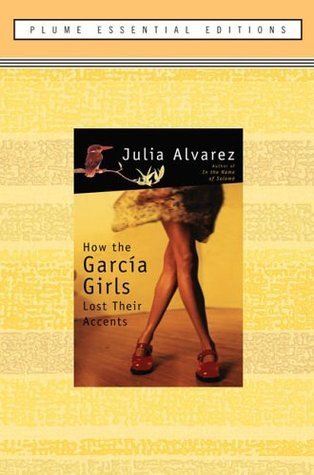How the García Girls Lost Their Accents by Julia Alvarez
Review of How the García Girls Lost Their Accents by Julia Alvarez
How the Garcia Girls Lost Their Accents by Julia Alvarez (1991). Published by Plume.
Lately, I’ve been on multiple different kicks when it comes to the literature and movies I consume. I absolutely adore immigration stories lately, especially those that are coming to New York City in a period where I was not alive in.
That said, it seemed like a no brainer when I stumbled on this book at my local library.
I was waiting for my mother to stop looking at the magazines and what was available for her, so I wandered into the fiction section and was just looking at the titles of the books.
It was the title that initially drew me to this book. It’s such a good title, but so simple at the same time. I absolutely loved it, and when I read the synopsis, that’s what ultimately made me check out the book right then and there. It took me about two days to get through the entire book.
Let’s get into the review!
The story of one Dominican family’s immigration, but told in reverse.
This is a story about a family who had to flee the Dominican Republic because of their political ties, but told from the beginning/contemporary day when this is being published. There are four sisters in the Garcia family: Carla, Sandra, Yolanda, and Sofia.
They arrive in New York City in 1960, not familiar with the intricacies of American life and how to speak in a more white-oriented society. Back home in Dominican, they lived such greater lives when it comes to the more luxurious pleasures: they had maids, a big home, lots of family members around.
Each of the chapters reads like a short story, and focuses on each of the sisters. As I mentioned before, this is a story told in reverse, so we get to unsee how the girls slowly became more American.
It begins, though, with the sister Yolanda coming back to the Dominican Republic thirty years after they left. The year is 1990, and they first came in 1960. We learn throughout the course of the stories each of the sisters developed their own problems, and perhaps it began with the rupture that happened in their lives.
For example, several of the sisters found themselves in marriages that were terrible or falling apart, and Yolanda suffers from a major mental health problem.
And as we move back through time, we see what brought them to these points. Their father was involved in a plot to try and take down the dictator of the DR, which is what ultimately led them to come to New York City.
There’s also another interesting element to all of this: these girls are upper class Dominicans, so their arrival to New York is completely different to other Dominicans who come from lower socioeconomic backgrounds. This makes them feel even more alone, making it harder to assimilate.
Overall Thoughts
If you’re looking for a coherent plot beyond these little vignettes, you might find yourself disappointed by this book. The writing itself is beautiful, but the characters aren’t really standing out to me because we don’t have a steady anchor.
We just move through the sea of time in order to get to the present day and its roots. I kind of wished that we had something a bit more concrete and novel like, less short stories, but I did enjoy this novel overall.
Go read it if you haven’t already and are interested!
Follow me below on Instagram and Goodreads for more.


![Jeju-do (제주도) is one of those places that reminds you of how stunning the world is
[7.12.2024 부터 7.14.2024 까지]](https://images.squarespace-cdn.com/content/v1/5ea1f794501b7153b29e7cd7/1721033601522-554E76HR01JUHDWZBJ1I/image-asset.jpeg)









